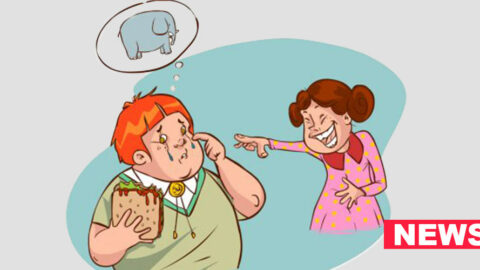In one of the riveting episodes that comprises Netflix’s Kohrra (2023), the central character Suvinder Vicky’s sub-inspector Balbir Singh dances and phases out of his immediate surroundings.
Psychologists would say he is dissociating under stress. He is attending the wedding of his assistant sub-inspector of police Barun Shobti’s Amarpal Jasjit Garundi amidst a mysterious murder case.
A few days previously, Paul, an NRI groom was found murdered in an unlikely setting: a foggy field in the middle of nowhere. His British best man, Liam, was missing. And to top it all, Singh was battling a rebellious daughter Nimrat who still blames her father for her mother’s suicide.
The vision-impairing fog that forms the setting of this crime/cop drama series from the very first episode goes beyond weather connotations to assume a dense fog of patriarchy, toxic male masculinity, violence, and drug abuse that engulfs the story’s setting: the small Punjabi town of Jagrana.
As Netflix’s Kohrra thickens, the audience is compelled to navigate dysfunctional family dynamics, the tragic consequences of toxic parenthood, and challenges faced by queer couples made devastatingly worse by cultural orientations and societal legitimization of the said oppression.
Much like its peers in Dahaad, Paatal Lok, Udta Punjab, and Kaalkoot, Kohrra uses the appeal of crime as a disguise for powerful social commentary on human relationships, socio-cultural norms, and mental health.
Mental Health Stigmatization
Singh’s wife and Nimrat’s mother is the only character in the series who is shown to openly grapple with mental illness. Flashbacks show how, during her mentally unstable episodes, Singh often resorted to violence to subdue her.
Violent arguments and fights between her parents, her mother’s questionable mental health treatment with unhelpful medications, as well as abandonment by her mother make up Nimrat’s unhappy childhood.
The trauma of her mother’s suicide haunts her and stops her from finding love or happiness. It also triggers her postpartum depression and makes her hateful toward her own child and husband. Witnessing her mother’s untimely death drives a wedge between her and her father, as well as compels her to make a suicidal attempt on her own life as an easy way out of her suffering.
Moreover, Toti, one of the drivers accidentally responsible for Liam’s death is seen suffering from hallucinations. In his fear of being discovered for the Britisher’s death, he develops psychosis and attempts to self-harm himself.
His fellow driver, Shinda, who actually runs over Liam with his truck and dumps his corpse in a well, develops pathological suspicion and a violent avoidant behavior to avoid capture by the police. In his paranoia, he also attempts to murder Toti to silence him forever.
Toxic Masculinity
Netflix’s Kohraa questions the deep constructs of Punjabi male masculinity. Singh, however good a cop, reinforces patriarchal values on his suffering daughter—similar to how he handled his mentally unstable wife in her lifetime.
He supports neither her decision to break free of her loveless marriage nor her rekindled relationship with an old flame. He locks her up and deals with her struggles to find freedom violently. He even beats up her lover in an attempt to discourage her from her divorce.
Similarly, the anglicized Steve Dhillon, the father of the murdered NRI groom, reeks of toxic male masculinity. Though based in London, he imposes on his son the traditional Five Ks of Khalsa Sikhism.
He violently reacts against his then teenage son’s choice to be a “cut-Surd” (or a Sikh man who chooses to cut his hair rather than maintain unshorn hair and beard). He even emasculates his vulnerable son by beating him up, covering him with his wife’s shawl, and calling him a woman in a public space.
Furthermore, the characters of Steve’s younger brother Manna and Garundi’s older brother Jung Garundi also personify toxic masculinity. Manna mistreats his son Happy, berating him as a foolish good-for-nothing. Manna’s constant comparisons between Happy and the more successful Paul leads to lasting emotional scars for Happy, shaping his self-perception and creating insecurities.
Jung is shown as a discreet controlling patriarch who discourages his brother from marrying and starting his own family due to selfish property interests. He is also aware of his wife’s affair with Garundi, but societal pressures and a desire to maintain family unity prevent him from taking any action.
Lastly, Saakar, an independent rapper, epitomizes toxic masculinity when he reacts to a breakup with his girlfriend by releasing an aggressive diss track filled with derogatory language and slut shaming.
Although Saakar does not resort to physical abuse or mental manipulation like the older men in the show, his misogynistic lyrics are reminiscent of earlier works by Honey Singh and Badshah.
Homophobia
The grisly murder of Paul Dhillon, which forms the crux of Netflix’s Kohrra, in the climax, is revealed to be a simple crime of passion. Paul is a closeted gay man, who agrees to his strict father’s proposal of marriage out of fear. He travels to India from London for his wedding, not telling anyone that his best man, Liam, is also his boyfriend.
Paul’s inability to open up to Steve about his sexuality infuriates Liam and he kills his lover. After the accidental kill, Liam panics and calls his mother, but gets overrun by Shinde’s truck.
Towards the end, when Balbir Singh spills the beans, Steve reacts to the “accusations.” Even while grieving his son, he fails to acknowledge the reality of his son’s sexuality and suffering as well as the part he played in his son’s death.
Grief
The ending credits of Netflix’s Kohrra show Steve Dhillon sitting alone in a bedroom, sobbing bitterly while holding his son’s shervani, which he was due to wear to his wedding. The scene is symbolic of his grief and how he regrets not accepting his son’s choices.
Steve’s wife and Paul’s mother, as well as Liam’s mother Clara bond in their grief for their dead sons, and their regret that they did not act decisively enough to support their sons’ secret relationship.
Balbir Singh’s coming to terms with his own marital mistakes and grief for his wife’s death allows him to accept his daughter’s struggles with an open mind. In grief and loneliness, he also bonds with the widow of his former informant; together, they navigate their personal and shared losses.
In this, the series marks significant progress in the popular depiction of elderly sexual desires, particularly those that are outside the bonds of marriage.
Drug Abuse In Punjab
Netflix’s Kohrra objectively portrays troubled drug addicts in rural and suburban Punjab without taking a preachy anti-drug stance. The show hints at the link between toxic masculinity and the drug menace in the state.
The world of Kohrra appears rife with drug dealers and consumers alike who glorify drugs as a means of entertainment and empowerment. Nearly all of the scenes that chronicle the happenings inside Jagrana’s police station’s tiny jail cell show the violent inquiry of drug addicts by the law officers. In the character of Kulli, a drug dealer, the series portrays drug withdrawal and the physiological impact of drug dependence.
This is not a concocted reality concerning drug abuse in Punjab. Research suggests that the “Punjabi sense of masculinity” may be linked to the increased consumption of drugs in Punjab, with some abusers turning to opioids to enhance sexual performance, influenced by societal perceptions of masculinity and physicality.
Despite not boasting of a star cast, Netflix’s Kohrra garnered stellar reviews for its portrayal of Punjabi society that has lost its sense of sight and right in the murky air of patriarchy, religious and cultural bias, and drug use. It has garnered widespread attention and received praise from renowned filmmakers like Karan Johar and Hansal Mehta for its exceptional storytelling.
Johar expressed his admiration for Kohrra by sharing a poster on Instagram. He described the series as one of the best he has seen since Trial By Fire, both directed by the talented breakthrough filmmaker Randeep Jha.
Karan praised the show’s portrayal of various themes, including parental patriarchy, disturbed childhood psychology, a woman’s right to passion and compassion, and the struggle with inner demons. He described the crime drama as an authentic, heart-wrenching, and emotionally exhilarating digital masterpiece that demands undivided attention.


























